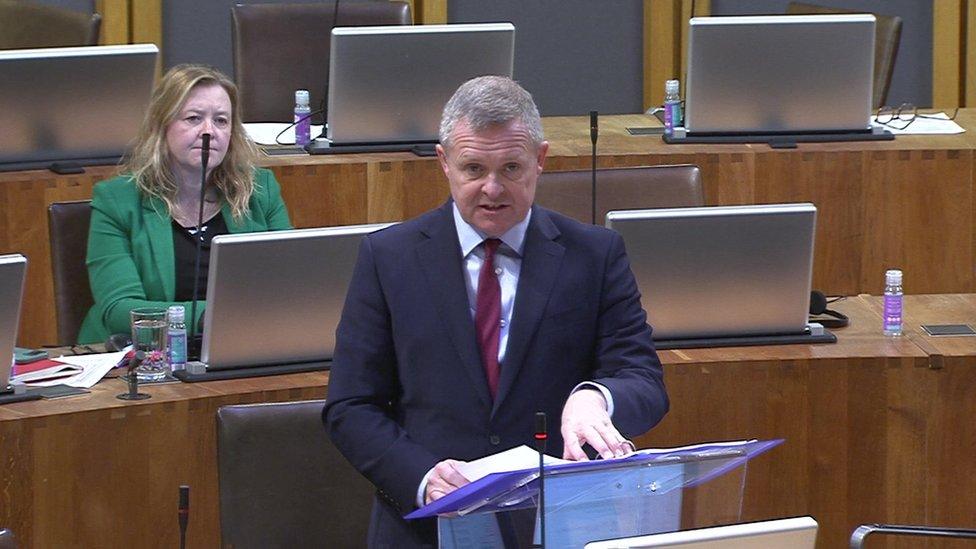Cost of living: Increasing £30 weekly student grant to be considered
- Published

EMA was scrapped in England in 2011 but kept in Wales, Scotland and Northern Ireland
A payment for less well-off 16 to 18-year-olds in further education in Wales, that has been frozen at £30 a week since 2004, could be increased.
Education Minister Jeremy Miles said the Welsh government would back a Senedd motion for an inflation-linked rise to education maintenance allowance (EMA) to be considered.
The motion also called for changes to eligibility thresholds to be reviewed.
Mr Miles warned there were "limits on our room for action".
However he said there were also "merits" in holding a review.
Students qualify for the payment in Wales if their household annual income is below £23,077, or £20,817 if there is only one young person in their household.
The thresholds have not changed for 12 years.
EMA was scrapped in England in 2011 but kept in Wales, Scotland and Northern Ireland.
Wednesday's motion was submitted by Labour, Plaid Cymru and Liberal Democrat Senedd members.
Mr Miles told the Welsh Parliament "the government will support the motion today, recognising the limitations on our room for action but also the merits of a review".

Jeremy Miles: "Money should never be a barrier to accessing education"
He said: "We will continue to use every single lever available to us to support our young people and ensure that we do all that we can to reflect the principle that money should never be a barrier to accessing education."
Plaid Cymru Senedd member Luke Fletcher, who led the debate on the motion, wants the grant increased to £55 due to the rising cost of living.
He said many students would be unable to afford to continue with their studies without additional support.
"Unless we support these students now we will continue to see an issue with retention, as many have no choice but to seek work," he said.
Labour MS Mike Hedges thanked the Welsh government for keeping EMA, saying "now is the time to start annual uplifts" in line with rising prices.
Previously a college lecturer, Mr Hedges said that "without EMA many students would not have been able to undertake their studies".
"Many more, driven by their families' economic circumstances, would at some stage have had to drop out," he said.
"Many of my former students ended up in well paid ICT jobs, helping both them and the economy."
- Published9 February 2023

- Published19 January 2023

- Published16 December 2022

- Published13 October 2011
